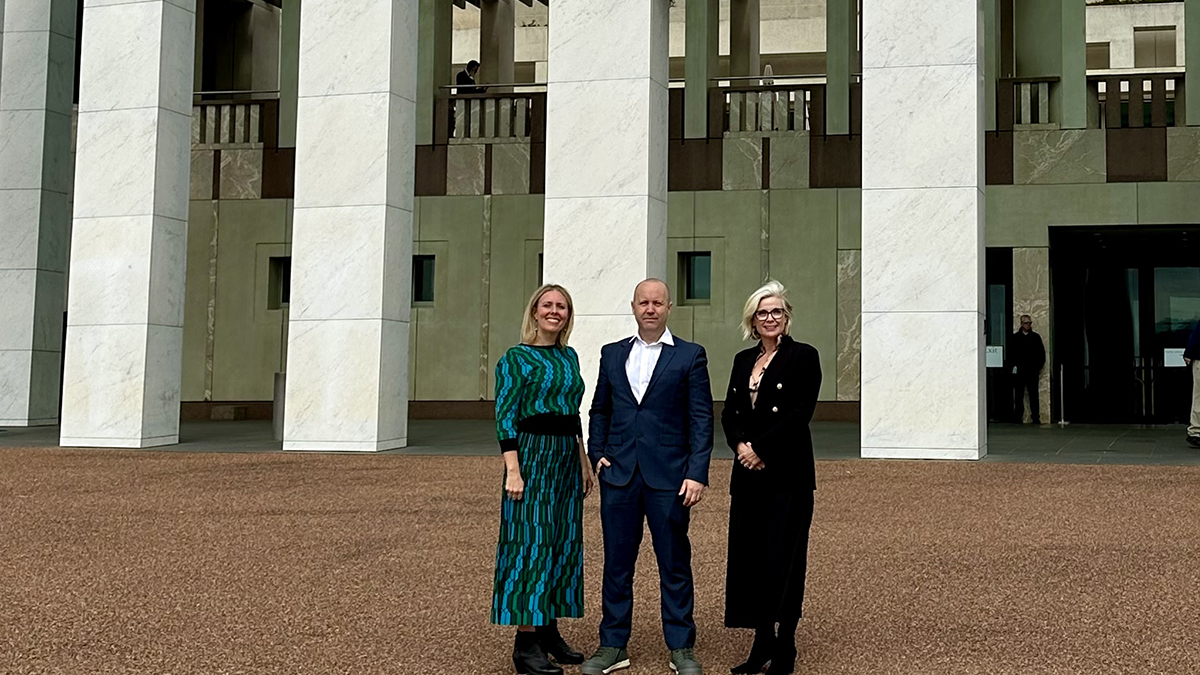
A multi-disciplinary approach aims to tackle OCD in children and young people through a new evidence-based model of care.
In September, the OCD BOUNCE team were invited to speak to over 50 MPs and Senators at Parliament House about their research and clinical service for young people with obsessive-compulsive disorder (OCD) as part of the Youth Mental Health Showcase.
To mark Youth Mental Health Day 2023, the Youth Mental Health Showcase was organised by Ms Kylea Tink MP and the Parliamentary Friends of Youth Mental Health to highlight the innovative work of organisations that provide support for young Australians experiencing mental distress.
OCD BOUNCE is a science-to-service collaboration between researchers, led by Dr Iain Perkes (UNSW Faculty of Medicine and Health & the Sydney Children’s Hospitals Network), Professor Jessica Grisham (UNSW Faculty of Science) and Professor Lara Farrell (Griffith University).
This multi-disciplinary team brings together over two decades of research and service delivery experience to tackle OCD across the lifespan, using co-design with mental health service leaders, clinician researchers, people with lived experience and their families. Their unique collaboration has resulted in transformative clinical research that is taking on one of the most significant issues in mental health research and practice to bridge the treatment gap for young people with OCD.
The OCD BOUNCE team is currently implementing a comprehensive, evidence-based model of care that provides young people with enhanced access to clinical care for OCD. This world-first implementation trial of an OCD model of care includes routine screening of OCD across relevant clinical services, cost-effective delivery of specialized, evidence-based OCD assessment and treatment, and the provision of clinician-training and ongoing supervision to build the skilled workforce. Through this vital work, the team is translating clinical research into practice to improve access to, and quality of, in-person and digital clinical care for young people with OCD.
A misunderstood condition with a significant impact
October is mental health month, and 8–14 October was International OCD Week. The latest data from the Australian Institute of Health and Welfare revealed that one in 30 Australians are living with OCD. That equates to approximately 2500 of UNSW’s staff and students.
OCD is a debilitating and widely misunderstood condition that often begins in childhood or youth. People with OCD and their families experience significant functional impairment, including school and work absenteeism, costing the Australian economy $3.4 billion annually. Sadly, Australians living with OCD typically experience a staggering nine-year delay to access any treatment, and often remain highly symptomatic or even deteriorate while waiting for care. When they are able to access care, they frequently receive suboptimal care owing to a dire lack of trained specialists.
Until recently there were no community-based specialised treatment services for young people with OCD in Australia and, consequently, they have been disproportionally admitted to locked hospital wards. The OCD BOUNCE team’s analysis of child and adolescent hospital admission data showed that OCD is associated with the second longest length of stay and highest readmission rates. These young people could, should and want to be treated in community with cognitive-behavioural treatment that is targeted for OCD symptoms and proven to achieve long term remission in approximately 60 per cent of cases.
Read more about our the OCD BOUNCE team’s work and find out more about OCD.
- Log in to post comments
